Judgment Day for Sheikh Hasina
A Bangladesh tribunal has sentenced ousted prime minister Sheikh Hasina to death for crimes against humanity during the 2024 student uprising. Netra News reporters witnessed the unprecedented trial and the dramatic moments around the verdict.
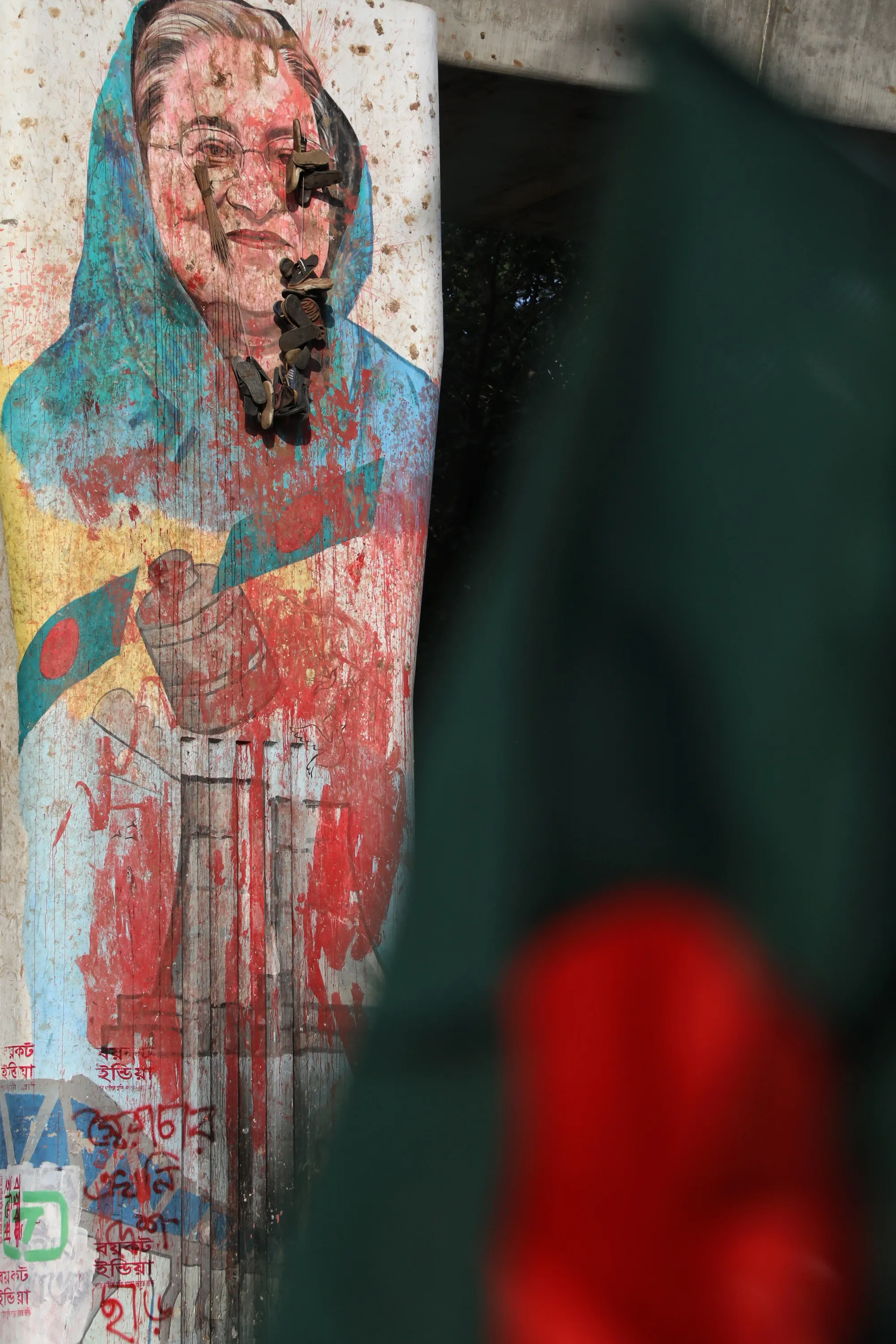
On the left side of the courtroom, in the fourth row, sat 17-year-old Mursalin Mia. His eyes never drifted from the bench ahead, where a trio of justices would soon speak the words he had waited months to hear. His prosthetic right leg — smooth, metallic and impossible to ignore — rested against the floor. This was no ordinary hearing, and this was no ordinary defendant. The woman on trial for crimes against humanity was Sheikh Hasina, the country’s former leader, absent from the dock and watching from afar, now ensconded in a bungalow nearly a thousand miles away in New Delhi.
Her government indiscriminately used lethal force to suppress a nationwide student protest during July-August last year. The ruthless crackdown on the movement became a defining moment in Hasina’s political career, one already marred with numerous allegations of human rights abuses. A United Nations body estimates that some 1,400 lives were killed and thousands more severely injured in those weeks.
Mursalin was among them.
“The police shot me in the leg right after they shouted, ‘You’re a student!’,” he said. “I lost consciousness immediately. I demand justice.” In the courtroom, Mursalin was accompanied by ten young survivors of the same violence bearing physical evidence, including Shabbir Ahmed, blinded by a police bullet.
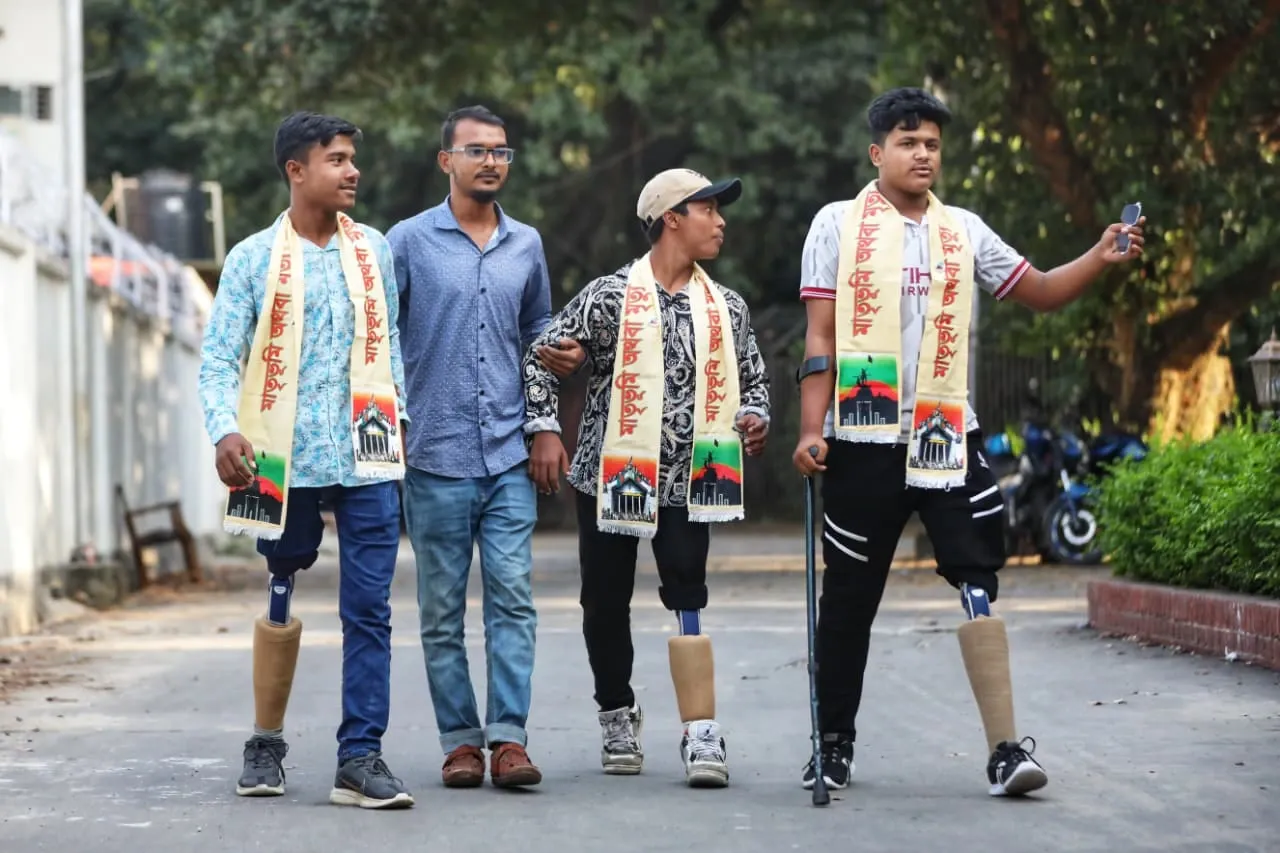
Each victim in the tribunal was draped in a ceremonial scarf bearing the defiant slogan: “Motherland or Death.”
A chronicle. 7:30 am
On Monday morning, the International Crimes Tribunal resembled a fortress. Armed personnel from multiple security forces patrolled every approach, forming a tight perimeter around the courthouse. An armoured personnel carrier stood nearby, a reminder of the stakes in the judgment soon to be delivered against the ousted prime minister and two of her closest aides: former home minister, Asaduzzaman Khan Kamal, and former police chief, Chowdhury Abdullah Al-Mamun.
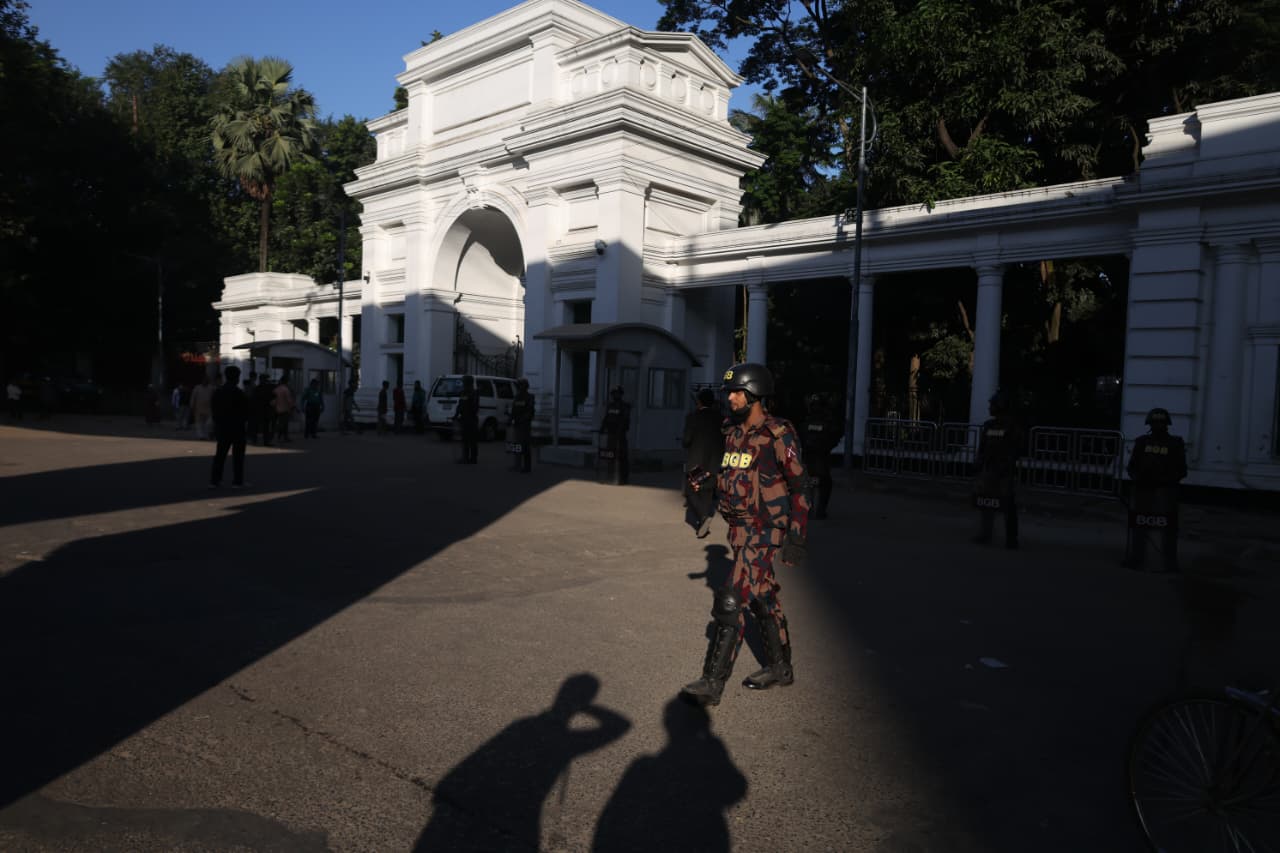
Their vigilance was hardly misplaced. Just days earlier, suspected Awami League loyalists had torched buses and hurled homemade explosives near government offices and official residences.
Anyone attempting to enter the tribunal compound faced a rigorous security screening.
Beyond the barricades, a thrum of domestic and international journalists clustered in the heat, cameras hoisted, lenses trained on the courthouse doors, waiting for the moment the judgement would break.
Soldiers guard alongside armed personnel carrier outside the International Crimes Tribunal premise in Dhaka, Monday, November 17th 2025. VIDEO: Marzia Hashmi Momo/Netra News.
The arrival. 9:05 am
Chowdhury Abdullah Al Mamun, the only defendant currently in the country out of the three on trial, was brought to the tribunal premises in a blue police prison van. He’s agreed to testify for the state in this landmark case in return for the chance of a reduced sentencing. As officers walked him from the van to the building, the former Inspector General of Police kept his head lowered the entire way.
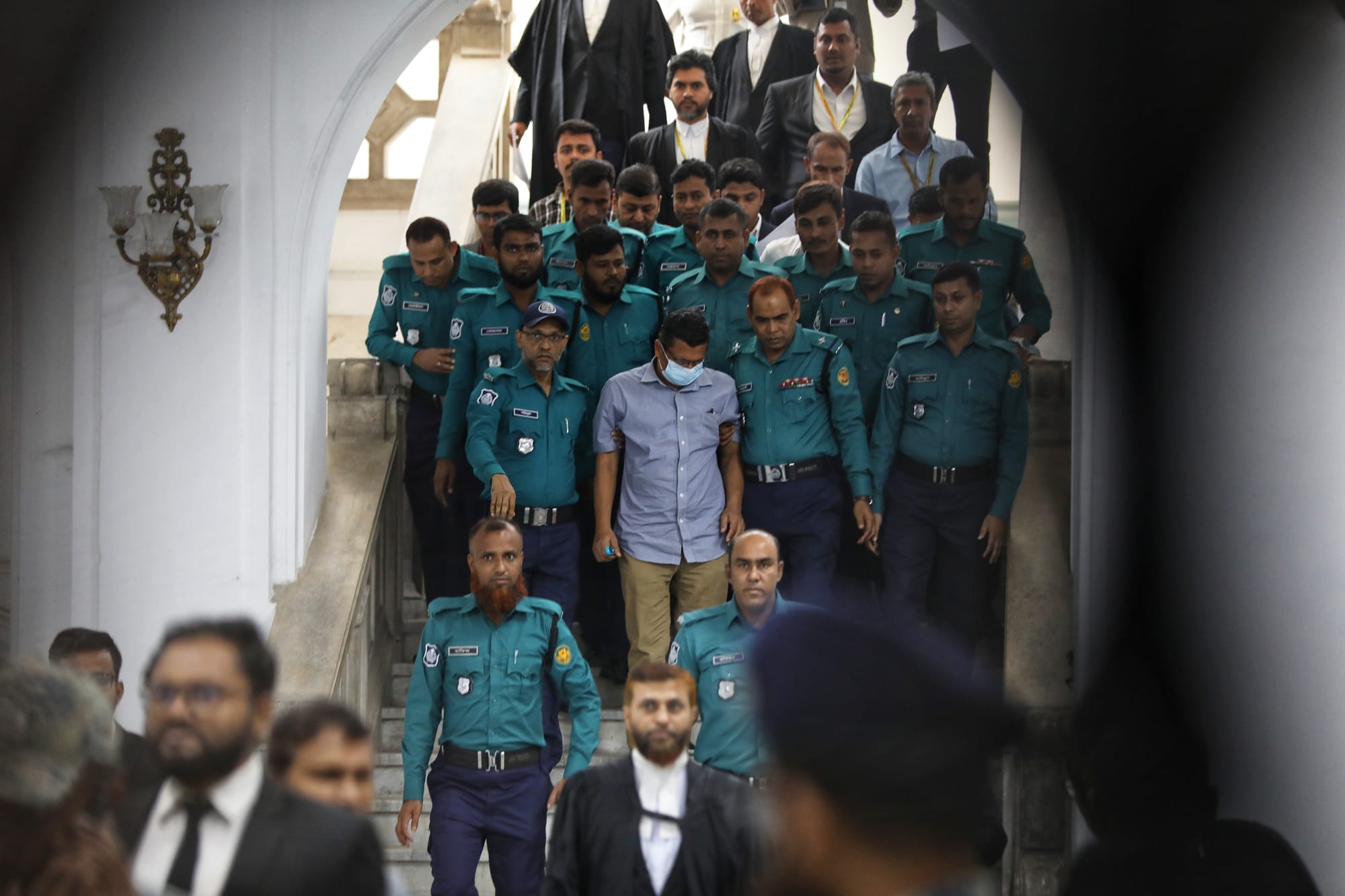
By 10 am, the atmosphere around the tribunal shifted. Families of those killed in the July Uprising, along with survivors who were badly injured, began to file in. Not long after, the prosecution team and the Attorney General made their entrance, followed by the three justices who would decide the case.
The crowded courtroom. 10:50 am
The courtroom was packed yet pin drop silence prevailed. Every bit of space was taken, even the narrow aisles meant for walking were jammed with people standing shoulder to shoulder. Well over a hundred faces were turned toward the bench: families seeking justice, lawyers, witnesses, investigators, reporters, police officers, human rights advocates – all squeezed into the same room, all waiting.
And in the middle of all this stood a single defendant, sitting alone inside the glass-enclosed dock. The other two accused, Sheikh Hasina and Asaduzzaman Khan Kamal, were nowhere to be seen. Both had fled the country after the July-August violence and were now living across the border.
The commencement. 12:30 pm
At 12:28 pm, the old mahogany clock on the white hall signalled it was time. Chairman Justice Md. Golam Mortuza Majumder and the two co-justices took their seats, and the room snapped to attention. Chief Prosecutor Tajul Islam promptly asked for permission to broadcast the ruling live on state television, a request the bench approved without hesitation. Two minutes later, at 12:30 sharp, the tribunal began reading the verdict.
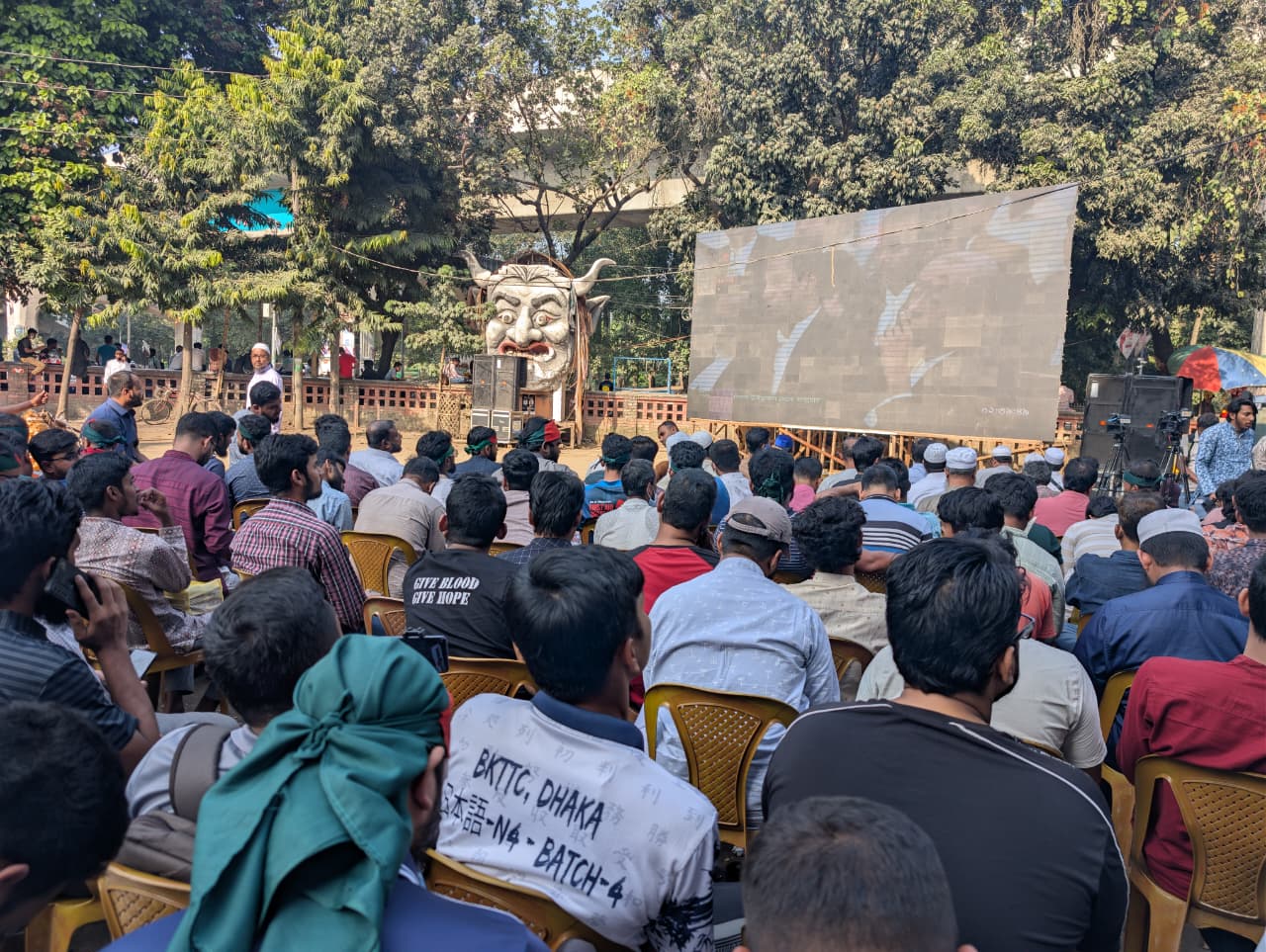
Throughout the session, the justices played and read out several recorded phone calls that directly implicated the former prime minister. In those recordings, Hasina could be heard giving explicit instructions on how to put down the July-August protests, orders that matched the brutal crackdown that followed.
A breakdown. 2:37 pm
It was during this stretch that Mamun, sitting alone in the glass dock, suddenly broke down. Tears filled his eyes and began running down his face, a startling moment for someone once seen as one of the most powerful men in the country.
The judge kept reading. The full verdict spans 453 pages across six sections, but the court said it would only read selected portions, roughly forty minutes of the total judgement.
Chowdhury Abdullah Mamun, the former chief of police, is being escorted to court. VIDEO: Marzia Hashmi Momo/Netra News
Applause. 2:42 pm
The tension broke in the courtroom. When the court finally announced its verdict, sentencing Sheikh Hasina to death on charges of crimes against humanity, the room erupted. Families of victims and survivors seated near the bench burst into applause, cheering through tears and embrace. It was a reaction unlike anything the tribunal had seen.
In its ruling, the three-member panel wrote that the atrocities took place with Hasina’s “full knowledge,” describing her as the “superior commander of all the atrocities.” The court also ordered that all of her assets seized.
Former home minister, Asaduzzaman Khan Kamal, received the same sentence: death and confiscation of properties. Mamun, meanwhile, was given five years in prison. His punishment was lighter because he turned state witness, admitting to his role in the atrocities and acknowledging his complicity.
Aftermath
Mursalin stepped carefully toward the door on his prosthetic leg, surrounded by the others who had lived through the same horror. The judgment had landed. Whether justice had truly begun was a question that would follow them long after they left the tribunal grounds.
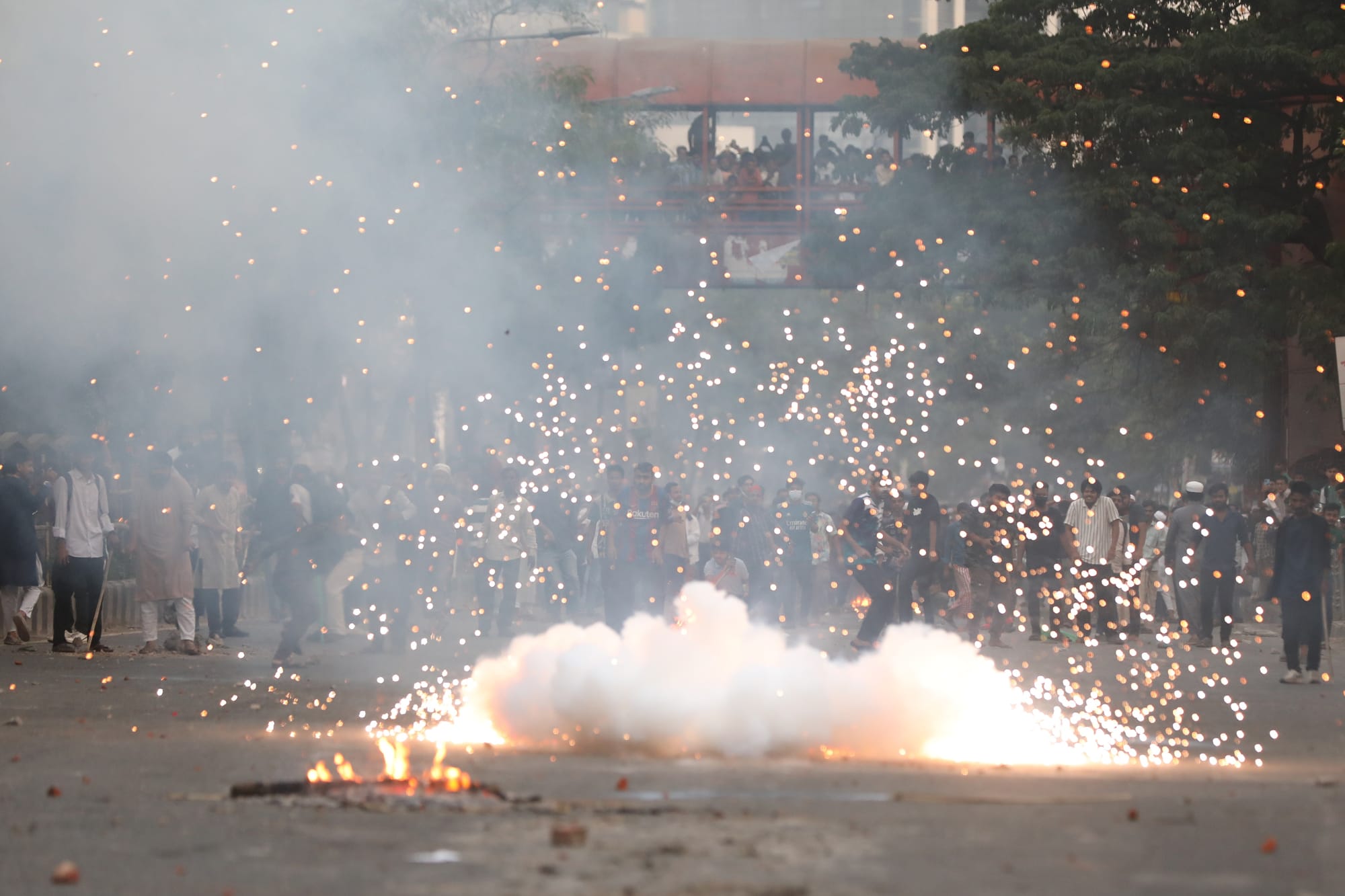
Amnesty International had already weighed in. “Justice for victims of the 2024 massacre,” the group said in a statement, is “not served by the death sentence.”
“Those individually responsible for the egregious violations and allegations of crimes against humanity that took place during the student-led protests in July and August 2024 must be investigated and prosecuted in fair trials. However, this trial and sentence is neither fair nor just,” it added.
The UN human rights office, which earlier found Hasina liable for “crimes against humanity”, took a similar line. It acknowledged that the verdict marked “an important moment for victims of grave violations,” but made clear its opposition to the death penalty.●